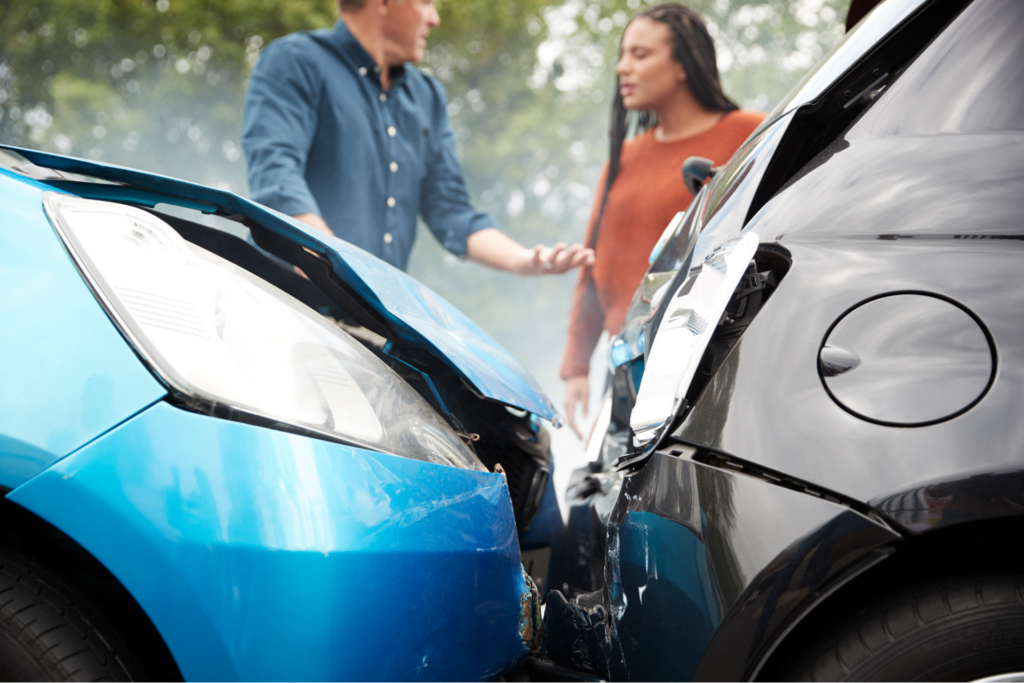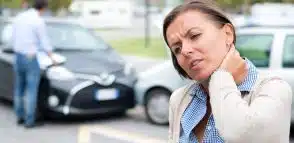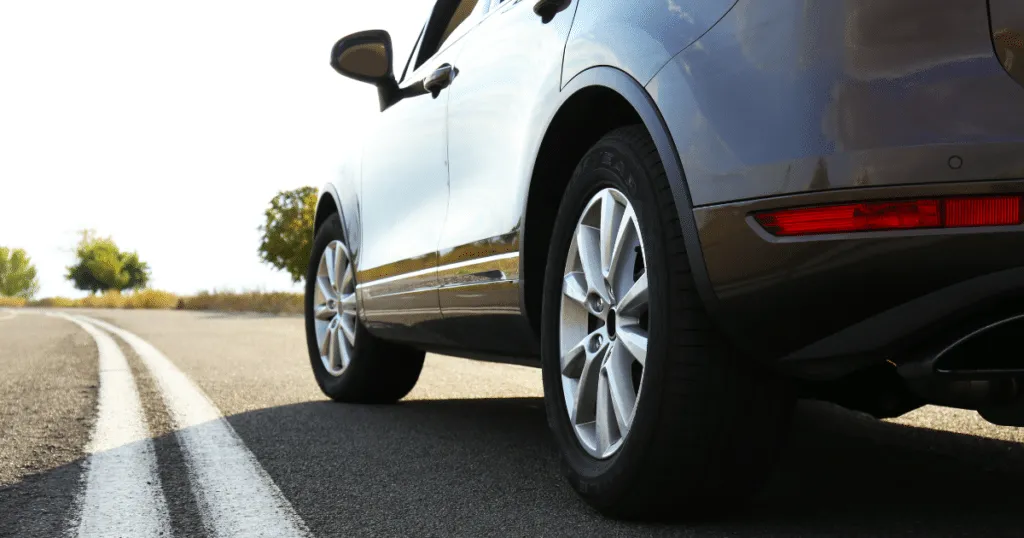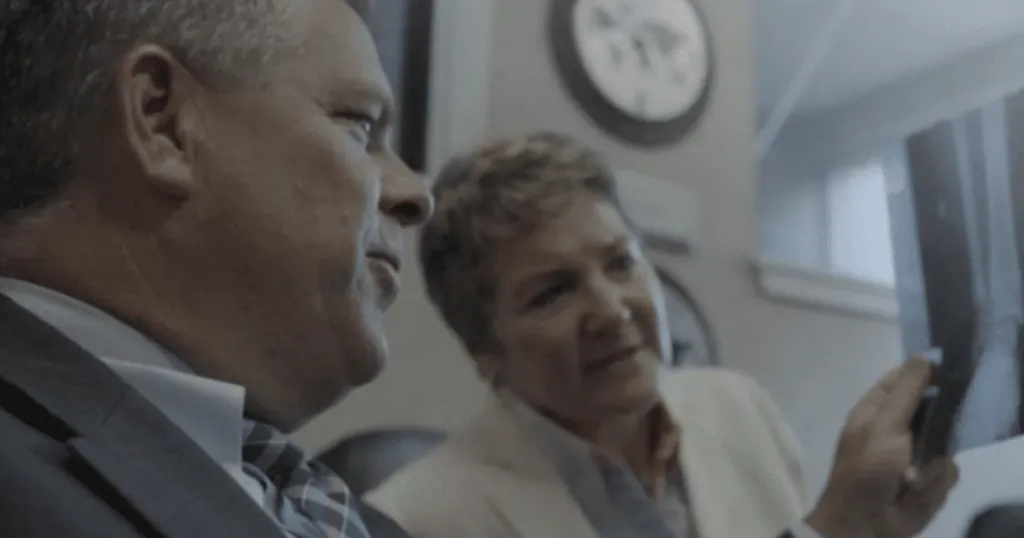
Being involved in an accident is stressful enough, but finding out the other driver is uninsured can quickly make a bad situation worse. Without the safety net of the at-fault driver’s insurance, you might be left wondering who will cover your medical bills and vehicle repairs or whether you can even pursue legal action.
Understanding your rights and responsibilities in this situation is crucial to protecting yourself financially and legally. Whether you’re dealing with out-of-pocket expenses, navigating insurance claims, or exploring other options for compensation, knowing the right steps to take can make all the difference.
What Is An Uninsured Driver?
An uninsured driver is someone operating a vehicle without the minimum liability car insurance required by the Rhode Island state insurance laws. This means they have no coverage to compensate for damages or injuries they might cause in an auto accident.
It’s important to distinguish between uninsured drivers and underinsured drivers. While uninsured drivers have no insurance at all, underinsured drivers do have car insurance coverage, but the at-fault driver’s liability insurance does not cover the full extent of damages resulting from an accident.
Uninsured drivers are a real concern across the country, and Rhode Island is no exception. As of 2022, approximately 14% of drivers nationwide – and 15.6% of drivers in Rhode Island – were uninsured, according to the Insurance Research Council. Each time you’re on the road, there’s a real chance you might get into an accident with a driver with no insurance.
By understanding how to handle accidents involving uninsured motorists, you’ll be better prepared to protect yourself if you ever find yourself in such a situation.
How Uninsured Motorist Coverage Works In RI
When it comes to auto insurance, Uninsured Motorist (UM) coverage plays a critical role in safeguarding drivers against the uncertainties posed by uninsured drivers. Understanding how this coverage operates is key to ensuring adequate protection and making informed decisions about your insurance needs.
Essentials Of Uninsured Motorist Coverage
It’s important to note that while some insurance policies may cover both Uninsured Motorist – Property Damage and Uninsured Motorist – Bodily Injury, others might only have one of these coverages. Therefore, the distinction is crucial, and individuals should be aware of their specific policy details to understand the extent of their protection in case of an accident with an uninsured or underinsured motorist.
Uninsured Motorist – Property Damage (UMPD):
- What It Covers: UMPD specifically addresses the damage to your vehicle caused by an at-fault driver who lacks liability insurance.
- How It Activates: When the other driver responsible for the accident doesn’t have insurance, your UMPD coverage kicks in to cover the costs of repairing or replacing your damaged vehicle.
- Coverage Limits: Just like any insurance, UMPD has limits that determine the maximum amount your insurer will pay for property damage. These limits are often set in conjunction with your standard liability coverage, but they can be adjusted based on your policy choices.
Uninsured Motorist – Bodily Injury (UMBI):
- What It Covers: UMBI is geared towards protecting you financially from bodily injuries resulting from an accident with an at-fault driver who lacks liability insurance.
- How It Activates: If the other driver doesn’t have insurance, your UMBI coverage steps in to cover medical expenses, rehabilitation costs, and possibly lost wages, acting as if it were the at-fault driver’s bodily injury liability coverage.
- Coverage Limits: Similar to UMPD, UMBI has coverage limits that determine the maximum amount your insurer will pay for bodily injuries. These limits are often aligned with your standard liability coverage but can be adjusted based on your policy choices.
DO I HAVE A CASE?
If you think you may have a case, contact us now for a FREE consultation
"(Required)" indicates required fields
Policy Limitations And Exclusions
Understanding the limitations and exclusions of your UM coverage is as important as knowing what it covers.
Typical Limitations:
- Coverage Caps: Your UM policy will have a maximum payout limit, which can impact the amount of compensation you can receive.
- Types Of Damages Covered: Some policies may only cover bodily injuries and not property damage, or vice versa.
Common Exclusions:
- Accidents Involving Family Members: In some cases, insurance does not cover accidents involving family members not listed on the policy.
- Hit-And-Run Scenarios: Certain policies may not cover hit-and-run incidents, or they may have specific requirements for how these are handled.
Differences In State Laws And Coverage
UM coverage is also shaped by state laws, which can vary significantly from one jurisdiction to another.
- Mandatory vs. Optional Coverage: Some states require drivers to carry UM coverage, while in others, it’s an optional addition to your auto insurance policy.
- Minimum Coverage Requirements: States that require UM coverage typically have minimum coverage requirements. These minimums can vary widely, influencing the extent of protection provided.
- Policy Structure Variations: The structure of UM coverage, such as whether it includes underinsured motorist coverage, can differ based on state-specific insurance regulations.
What To Do After A Crash With An Uninsured Driver In Rhode Island?
The moments following a car accident can be chaotic and stressful, especially when the other driver is uninsured. Taking the right steps immediately can significantly impact the outcomes of insurance claims and potential legal proceedings.
This section outlines the critical actions to take in the aftermath of an accident with an uninsured motorist, ensuring your safety and protecting your rights.
Ensuring Safety And Reporting the Accident
The first and foremost priority in any accident is safety.
- Check for Injuries: Assess yourself and others for any injuries. Call emergency services immediately if medical attention is needed.
- Move to Safety: If the accident is minor, move vehicles to the side of the road to avoid obstructing traffic and further accidents.
- Report the Accident: Contact the police as soon as possible after the accident. A police report is crucial, especially in accidents involving uninsured drivers.
Documenting The Scene Of The Accident And Gathering Information
Documenting the accident scene is pivotal in building your case, whether for insurance claims or legal purposes.
- Take Photos: Capture clear photos of the vehicles, damages, accident scene, and any relevant road signs or markings.
- Gather Information: Exchange information with the other driver, including names, contact details, and vehicle details. Note that the other driver may not have insurance information to provide.
- Witness Information: If there are witnesses, obtain their contact information, as they can provide valuable statements later.
Interacting With The Other Driver
Dealing with the other driver requires a cautious approach, particularly if they are uninsured.
- Stay Calm and Courteous: Keep the interaction civil. Avoid confrontations or admitting fault.
- Do Not Accept Or Offer Cash Settlements: It’s important not to settle the matter privately on the spot, as this can complicate legal and insurance processes.
- Inform Them Of Your Intention To File A Claim: If you plan to file a claim with your auto insurance company, make this known to the other driver.
The Role Of Police In Uninsured Motorist Accidents
The involvement of law enforcement is a crucial component in handling accidents with uninsured drivers.
- Filing an Official Report: The police will file an official report, which is an essential document for insurance and legal proceedings.
- Determining Fault: While the police report does not always determine fault, it provides an official account of the accident, which can be significant in disputed cases.
- Legal Compliance: In many jurisdictions, failing to report an accident is a legal offense, especially when it involves an uninsured driver.
Navigating The Insurance Claims Process
After an accident with an uninsured driver, navigating the insurance claims process is critical to securing the maximum compensation. Although the process can be complex, here are the fundamental steps you need to take to ensure your rights are protected, and you receive the compensation you’re entitled to.
Reporting The Accident
Start by reporting the accident to the police and gathering all necessary documentation, including photos, a police report, and witness statements. This evidence will support your claim.
Filing A Claim With Your Insurance
Notify your insurance provider promptly about the accident. Provide detailed information and specify that it involves an uninsured driver. This will activate your UM coverage, if applicable.
Working With Your Insurance Adjuster
Your insurance adjuster will evaluate the damages and determine the settlement based on your policy. Stay proactive: submit complete documentation, follow up regularly, and address any concerns promptly to avoid delays.
Approaching each step with clarity and preparation, you can navigate the claims process more effectively and secure the compensation you deserve.
Protecting Yourself In The Future With Uninsured Motorist Coverage
Dealing with an uninsured driver can be financially devastating, but UM coverage offers a critical safety net. In Rhode Island, where accidents with uninsured drivers are not uncommon, having UM coverage as part of your policy is a wise decision.
UM coverage steps in when the at-fault driver has no insurance or insufficient coverage to compensate for your losses. It can help cover medical bills, vehicle repairs, and other expenses that might otherwise come out of your pocket. Without this coverage, you may face significant financial strain in the aftermath of an accident.
To ensure adequate protection:
- Evaluate Your Policy: Review your existing insurance to confirm that UM coverage is included and assess whether your coverage limits are sufficient for potential risks.
- Adjust For Better Coverage: Consider increasing your policy limits to avoid out-of-pocket expenses in severe accidents.
- Understand Costs vs. Benefits: While higher limits may increase premiums slightly, they provide peace of mind and robust financial protection.
By securing UM coverage and regularly reviewing your policy, you can safeguard yourself against the unexpected challenges posed by uninsured drivers and drive with greater confidence.
How A Personal Injury Attorney Can Help With Uninsured Motorist Claims In Rhode Island
Dealing with the aftermath of an accident caused by an uninsured driver is often overwhelming. Navigating complex insurance claims, understanding your legal rights, and addressing the financial consequences often require professional guidance. A Rhode Island personal injury attorney can provide invaluable support throughout this challenging process.
An experienced attorney can help you interpret your insurance policy, including any UM coverage, and ensure that you take the correct steps to protect your claim. They will thoroughly investigate the circumstances of the accident, gathering crucial evidence like police reports, witness statements, and accident reconstruction data to strengthen your case.
When it comes to dealing with car insurance companies, a personal injury attorney can handle the negotiations on your behalf, ensuring you receive a fair settlement. If your insurer denies the claim or offers an inadequate amount, your attorney can pursue legal action, even helping you sue the at-fault driver if necessary to recover damages.
One of the key benefits of working with an attorney is the opportunity to receive expert guidance without financial risk. Our law firm offers a free, no-obligation initial consultation, allowing you to explore your legal options and receive advice without upfront costs.
If you’re hit by an uninsured driver, contact our Rhode Island personal injury attorneys for a free consultation. We’ll guide you through the process and fight for your rights. Call (401) 217-8410 or fill out our online contact form today!
FAQs
What if the uninsured driver blames me for the accident?
If the uninsured driver blames you, it’s important to gather evidence, such as witness statements, police reports, and any available photos or videos, to support your case. A car accident attorney can help prove fault and protect your rights in the event of a dispute.
What happens if more than one party is at fault in an accident?
If multiple parties are involved, liability may be shared. Your attorney can help identify all potentially responsible parties and ensure that you seek compensation from each, which can increase your chances of recovering full damages.
Can I lose the right to compensation from the liable party if I wait too long to act?
Yes, there are statutes of limitations for filing personal injury claims. In Rhode Island, you typically have three years from the date of the accident to file a lawsuit against the at-fault driver. Waiting too long can bar you from pursuing compensation. It’s essential to consult with an attorney promptly to avoid missing important deadlines.
What if the uninsured driver admits fault but doesn’t have insurance?
If the uninsured driver admits fault for the accident, you can use your UM coverage to file a claim. If you don’t have uninsured motorist coverage, you may need to pursue legal action to recover damages. When it comes to suing an uninsured driver, guidance from a personal injury or car accident attorney will be crucial.
What if I can’t find the uninsured driver after the accident in Rhode Island?
If you can’t locate the uninsured driver, you can still file a claim under your UM coverage if it’s part of your policy. This coverage helps protect you when the at-fault driver is unidentified or cannot be located.
Can I use my health insurance to cover medical bills after an accident with an uninsured driver?
Yes, you can use your health insurance to cover medical expenses. However, it’s advisable to use your uninsured motorist coverage first, as it may help you recover costs more comprehensively. Your attorney can help determine the best approach for your situation.
Contact Our Rhode Island Car Accident Lawyers Today
If you or a loved one has been injured due to someone else’s negligence, don’t wait. Marasco & Nesselbush injury attorneys take pride in navigating the entire legal process with you. While you may be focused on physical injuries and regaining your health, we will work to get you the compensation you deserve.


